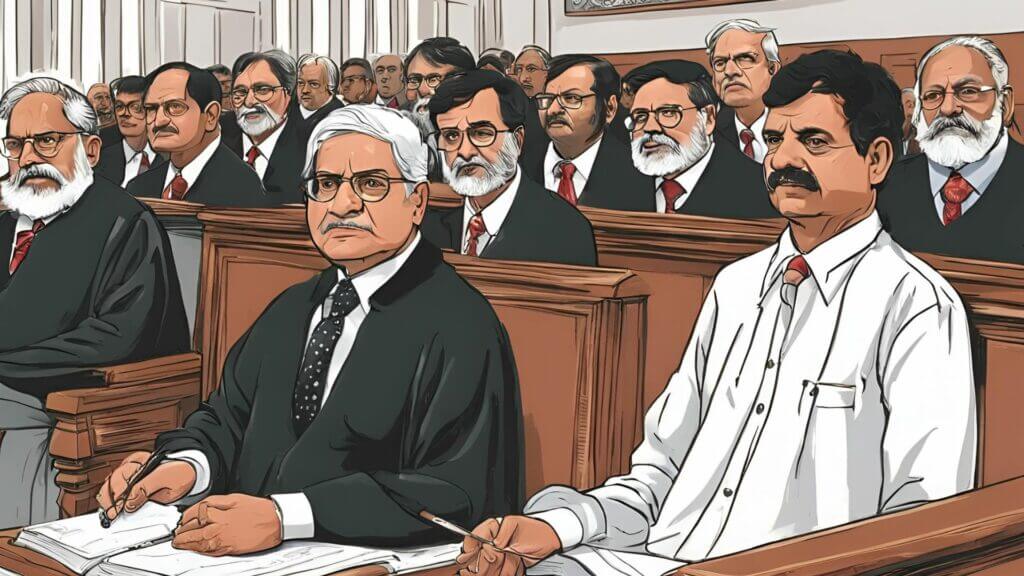Supreme Court: Pharma Companies not allowed deduction of Freebies Given to Doctors as Expenses
In a landmark judgment that has drawn significant attention from the healthcare and pharmaceutical sectors, the Supreme Court of India has established a precedent with far-reaching consequences. The case in question, M/s Apex Laboratories vs. Deputy Commissioner of Income Tax, centered around the practice of pharmaceutical companies providing freebies to doctors—a common yet contentious marketing strategy. This decision reaffirms the legal stance that expenditures on incentives to doctors, which include gifts, travel facilities, and other amenities, cannot be claimed as deductible expenses under Section 37(1) of the Income Tax Act, 1961.
Contextual Importance of the Decision
The pharmaceutical industry is notoriously competitive, and companies often employ aggressive marketing strategies to promote their products. One such common practice has been the provision of freebies to doctors, aimed at influencing their choice of prescribed medicines. This practice, although widespread, raises ethical questions and concerns about the potential for it to lead to the prescription of unnecessary or more expensive medicines.
The Supreme Court’s ruling makes a significant stride towards addressing these ethical dilemmas by reinforcing the provisions of the Indian Medical Council (Professional Conduct, Etiquette and Ethics) Regulations, 2002. Specifically, Regulation 6.8 of these regulations strictly prohibits doctors from accepting any gifts, hospitality, or monetary incentives from pharma companies. Not only does this rule aim to uphold the integrity of medical practitioners, but it also assures the public that the medications prescribed to them are chosen based on efficacy and necessity, not on corporate influence.
Legal Framework
Section 37(1) of the Income Tax Act serves as a general provision allowing taxpayers to claim deductions for expenses exclusively spent for business or professional purposes. However, a crucial amendment includes an explanation clarifying that no deduction will be permitted for expenses incurred on activities that are illegal or prohibited by law.
Despite clear regulations, there was an ambiguity when pharmaceutical companies continued to deduct such expenditure. The ongoing inconsistency led the Central Board of Direct Taxes (CBDT) to issue a circular clarifying this matter further. For a complete understanding of how other income and deductions might impact your tax responsibilities, especially ahead of the tax season, you might find it helpful to check the Annual Information Statement which includes comprehensive data on your financial transactions.
The inception of this case and the arguments posed by M/s Apex Laboratories brought forth necessary scrutiny of pharmaceutical companies’ accountability and the ethical implications of their marketing strategies. Going forward into the subsequent sections, we will delve deeper into the Supreme Court’s analysis and the implications this ruling holds for the pharmaceutical industry and medical ethics.
Supreme Court’s Judgment Explained
Case Background and Legal Arguments
The case of M/s Apex Laboratories vs. Deputy Commissioner of Income Tax exemplifies the legal scrutiny over pharmaceutical marketing practices. Apex Laboratories argued that since the Medical Council Regulations do not punish pharmaceutical companies for offering freebies, these should be permissible as deductible expenses. The company contended that such expenditures were integral to their business marketing strategies, aiming to foster relationships within the medical community.
Conversely, the Income Tax Department (ITD) maintained a firm stance against the deduction of these expenses. They argued that although directly not labeled as ‘offensive’, the practice was prohibited under the Medical Council Regulations. Thus, per Explanation 1 to Section 37(1), which prevents deductions for expenses related to illegal activities or those prohibited by law, such expenditures should not be deductible.
Supreme Court’s Ruling
The Supreme Court’s examination of this issue was thorough. It acknowledged the lack of direct sanctions against pharmaceutical companies within the Medical Council Regulations but underscored the broader ethical implications and legal frameworks. The Court stated that Explanation 1 to Section 37(1) of the IT Act clearly meant to curb businesses from claiming deductions on expenditures related to activities that are illegal or prohibited by law.
Highlighting the interconnected nature of doctors and pharmaceutical companies in the medical field, the Court noted that both parties operate in a symbiotic environment where actions of one directly impact the other. Hence, if accepting freebies is prohibited for doctors under ethical guidelines, promoting such behavior by companies should also be seen as prohibited by extension.
The judgment emphasized that allowing pharmaceutical companies to deduct such expenses would counteract the regulatory framework’s intent, ultimately undermining public health interests. It would incentivize companies to engage in practices that lead to inflated healthcare costs and might influence the prescribing behavior of medical practitioners adversely.
For further insight into procedures and nuances related to taxation and deductions, consider reading about the revised procedure for lower deduction of TDS under certificate 197 which can provide clarity on how specific deductions are handled under the Income Tax Act.

Implications of the Judgment
The Supreme Court’s decision sets a decisive precedent that extends beyond just the realms of taxation and corporate deductions. It addresses a critical ethical dimension, aligning with global efforts to ensure that healthcare decisions are made based on patient welfare rather than commercial influence. The judgment resonates with the ideologies that govern medical ethics, reinforcing that the medical profession’s integrity must not be compromised.
Implications for Pharmaceutical Companies
Operational and Financial Impact
The ruling pronounced by the Supreme Court undeniably imposes new operational and financial realities on pharmaceutical companies. These organizations must now scrutinize and modify their marketing strategies to comply with the legal frameworks, ensuring that their promotional activities do not involve direct or indirect incentives to healthcare professionals. This change necessitates a shift toward more transparent and ethical marketing practices.
Financially, the inability to claim deductions on what could be substantial marketing expenditure compels companies to reassess their budgets. The financial recalibration may focus more on product innovation and less on aggressive promotion, leading potentially to a more quality-driven competition in the pharmaceutical industry.
Strategic Business Adjustments
In response to the judgment, pharmaceutical companies may need to innovate their approach to engagement with healthcare professionals. This could involve enhanced investment in educational and training programs that provide genuine value to medical practitioners without breaching ethical boundaries. Such initiatives can help maintain strong professional relationships while staying within the legal framework.
It’s also imperative for companies to implement stringent compliance programs that ensure all forms of compensation to doctors, whether direct or indirect, adhere to the regulations. Strengthening internal audit mechanisms to monitor compliance with these ethical guidelines is crucial.
For an in-depth understanding of how financial transactions are scrutinized under tax laws, the article on the onus of proof on the Income Tax Department may provide useful insights into corporate responsibilities and legal standards.
Impact on Healthcare Practice and Drug Pricing
The Supreme Court’s decision is expected to have a positive impact on the overall healthcare practices in India. By eliminating incentives for prescribing specific drugs, doctors may focus more on prescribing medications based on their efficacy and patient need rather than influenced by pharmaceutical patronage.
This scenario might also lead to more rational drug pricing. As pharmaceutical companies reduce spending on aggressive marketing techniques, the savings could potentially be passed on to consumers in the form of lower drug prices. Thus, this ruling indirectly supports the fight against the high cost of healthcare and promotes more accessibility to necessary medications.
Conclusion
The ruling by the Supreme Court marks a pivotal moment in the intersection of healthcare, ethics, and law. It reaffirms the commitments towards maintaining the sanctity of medical practice and ensuring that healthcare decisions are made in the best interest of patients rather than being driven by corporate profits. As pharmaceutical companies adapt to these new rules, the hope is that the industry moves towards more ethical practices that prioritize patient health and equitable access to medical treatments.
The decision also underscores the importance of regulatory compliance and ethical governance in the pharmaceutical industry. This case might serve as a reference point for similar legal assessments in other sectors, emphasizing the need for businesses to operate within the ambit of law and ethics.
As we look to the future, the pharmaceutical sector, along with regulatory bodies, must continue to evolve and address the challenges posed by the ever-changing landscape of medical science and patient care.
Disclaimer
The materials provided herein are solely for educational and informational purposes. No attorney/professional-client relationship is created when you access or use the site or the materials. The information presented on this site does not constitute legal or professional advice and should not be relied upon for such purposes or used as a substitute for professional or legal advice.







